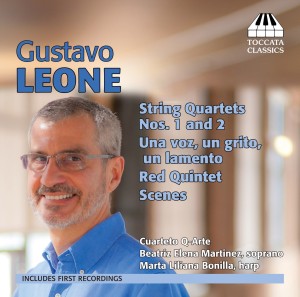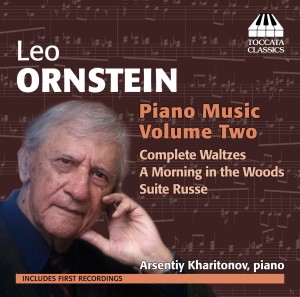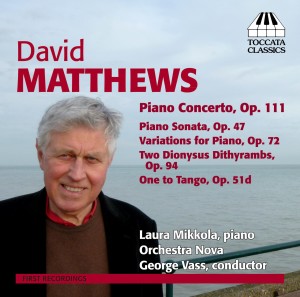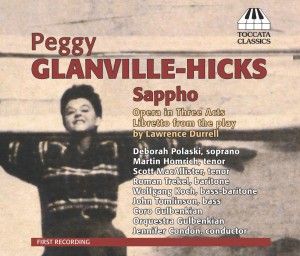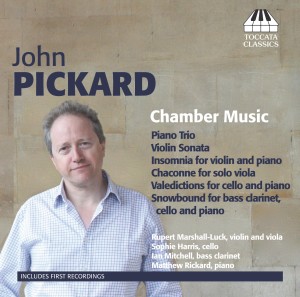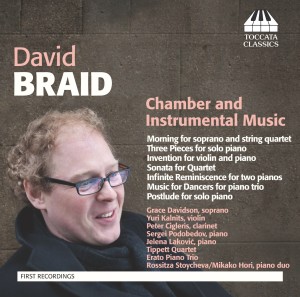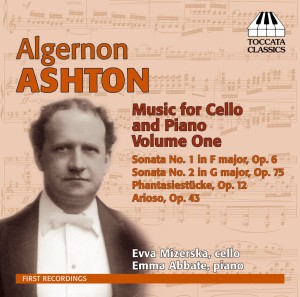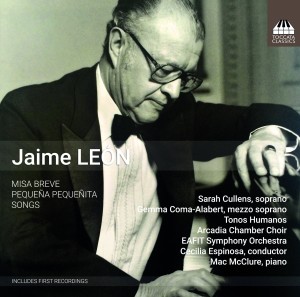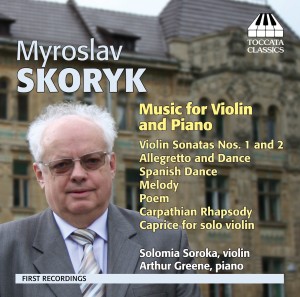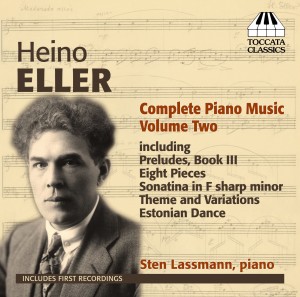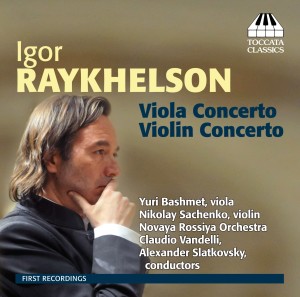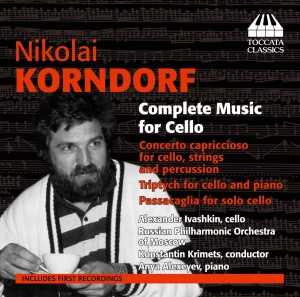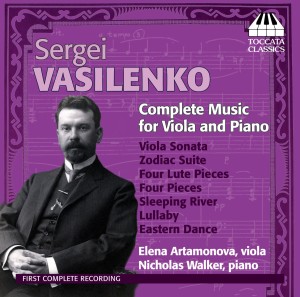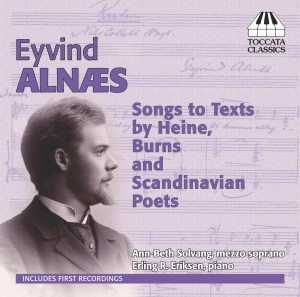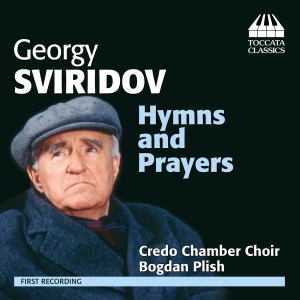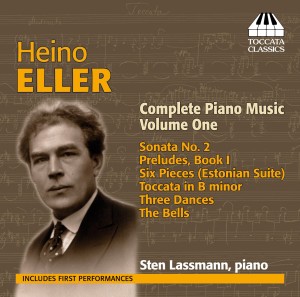Search Results for "Space Wolf: The First Omnibus mp3 torrent" – Page 43
Gustavo Leone: String Quartets
The music of Gustavo Leone — born in Buenos Aires in 1956 and now a professor of music at Loyola University in Chicago — combines a strong sense of atmosphere with a feeling for drama, its basic lyricism coloured with echoes of folk-music and the Baroque and animated by outbreaks of dancing energy.
Cuarteto Q-Arte, string quartet
Beatriz Elena Martínez, soprano
Marta Liliana Bonilla, harp
Leo Ornstein: Piano Music, Volume Two
The Russian-born American pianist-composer Leo Ornstein (1893-2002) lived long enough — an astonishing 109 years — to see his music both fall into and re-emerge from obscurity. With his earliest surviving work dating from around 1905 and his last from 1990, Ornstein's music naturally embraces a range of styles, extending on this second CD of his piano music from the Rachmaninov-like Suite Russe (1914) to the brittle but urgent Impressionism of A Morning in the Woods (1971). The meat of this disc is the extraordinary sequence of seventeen Waltzes Ornstein composed, largely in the 1960s and '70s, which vary from the sexily languorous to the boldly tempestuous, requiring the fearless virtuosity that Arsentiy Kharitonov brings to them here.
Arsentiy Kharitonov, piano
David Matthews: Music for Piano
In his piano music, as in his symphonies and string quartets, the English composer David Matthews (b. 1943) marries the idiom of classical tradition with that of his own day. His 2009 Piano Concerto, Mozartian in spirit, contains both a tango and a blues; his Piano Sonata of 1989 includes jazz elements, and his 1997 Variations feature both blues and a homage to Beethoven. The moods range from contemplative introspection to fiery, rhythmic energy, captured here in feisty performances by the Finnish pianist Laura Mikkola, whom the composer describes as 'a marvellous exponent of my music'.
Laura Mikkola, piano
Orchestra Nova, orchestra
George Vass, conductor
Peggy Glanville-Hicks: Sappho
Sappho, the last grand opera of Australian composer Peggy Glanville-Hicks (1912-90), was written in her stone cottage on Mykonos in 1963. Never heard before this recording, Sappho reflects Glanville-Hicks' fascination with the orient and folk music, encapturing the colours of ancient Greece, with a heroic brass fanfare and epic writing for chorus, haunting woodwind solos and shimmering percussion evoking the stillness of crystal island waters. Deborah Polaski, who creates the role of the disenchanted Sappho, describes it as 'the kind of music that singers want to sing'. The libretto, based on Lawrence Durrell's verse-play, incorporates fragments of Sappho's own verse.
Deborah Polaski, soprano: Sappho
Martin Homrich, tenor: Phaon
Scott MacAllister, tenor: Pittakos
Roman Trekel, baritone: Diomedes
Wolfgang Koch, bass-baritone: Minos
Sir John Tomlinson, bass: Kreon
Jacquelyn Wagner, soprano: Chloe/Priestess
Bettina Jensen, soprano: Joy
Maria Markina, mezzo soprano: Doris
Laurence Meikle, baritone Alexandrian
Coro Gulbenkian, choir
Orquestra Gulbenkian, orchestra
Jennifer Condon, conductor
Double Disc!
John Pickard: Chamber Music
Reviews of music by the English composer John Pickard (b. 1963) have stated that 'he has the technique and the temperament to emerge as one of the great symphonists of the 21st century', even that 'his place among the greats is secure'. This conspectus of his chamber music traces the evolution of his style over two decades, from the Piano Trio of 1990 to Snowbound of 2010, revealing a powerful rhythmic drive, a feeling for toughly argued drama and a poetic sensitivity to atmosphere among its most prominent characteristics.
Rupert Marshall-Luck, violin, viola
Sophie Harris, cello
Ian Mitchell, bass clarinet
Matthew Rickard, piano
David Braid: Chamber and Instrumental Music
The British composer David Braid, born in North Wales in 1970, studied in London, Oxford and Kraków, and his music shows something of that double inheritance, bringing together the lyricism of such English composers as Dowland and the dynamism of the Polish school of Lutosławski. This debut CD of his music presents chamber and instrumental works written between 2006 and 2011. Steve Reich described the raga-like Morning for soprano and string quartet — the Pablo Neruda setting which opens this disc — as 'beautifully done — very honest stuff’; the other works here encompass a divergent range of moods, from the melancholy of Infinite Reminiscence to the energetic drive of Music for Dancers.
Grace Davidson, soprano
Peter Cigleris, clarinet
Yuri Kalnits, violin
Julia Morneweg, cello
John Paul Ekins, piano
Sergei Podobedov, piano
Jelena Laković, piano
Tippett Quartet, string quartet
Erato Piano Trio, piano trio
Rossitza Stoycheva and Mikako Hori, piano duo
Algernon Ashton: Music for Cello and Piano, Volume One
Algernon Ashton, born in Durham in 1859, is one of the best-kept secrets in British music, with a generous output of piano music, chamber works and songs. Rutland Boughton wrote that he 'seems to pour out great musical thought as easily as the lark trills its delight in cloudland': although Ashton's writing for both cello and piano is virtuosic, what strikes the ear is the quality of his melodic inspiration — the lyrical immediacy of his tunes suggests Schubert, set in a style of Brahmsian richness.
Evva Mizerska, cello
Emma Abbate, piano
Jaime León: Vocal Music
Born in 1921, Jaime León is now the Grand Old Man of Colombian music. A vital figure in the development of Colombian art-music, León has been pianist (he is a grand-student of Clara Schumann), conductor, teacher, administrator and composer. His Misa breve has an innocent sincerity reminiscent of Poulenc's religious music, and although the word-setting in his songs is subtle and imaginative, they have the same melodic immediacy and uncomplicated appeal.
Sarah Cullens, soprano; Gemma Coma-Alabert, mezzo soprano; Tonos Humanos; Arcadia Chamber Choir; EAFIT Symphony Orchestra; Cecilia Espinosa, conductor; Mac McClure, piano
Myroslav Skoryk: Music for Violin and Piano
The leading Ukrainian composer of today, Myroslav Skoryk (born in Lwów, now Lviv, in 1938) grew up in Siberia, where his family was deported after the Second World War, and he began to write music under the tutelage of other political prisoners there. He later studied with Kabalevsky in Moscow before settling back in his native city, where he soon became an important teacher and is now a major figure in Ukrainian cultural life. His music is direct and forthright, with echoes of Prokofiev: there are passages of driving energy and power and a keen sense of drama — and Skoryk, too, is not afraid of writing a glorious tune when he wants to.
Solomia Soroka, violin
Arthur Greene, piano
Heino Eller: Complete Piano Music, Volume Two
As both composer and teacher Heino Eller (1887-1970) was one of the founders of the classical tradition in his native Estonia. Yet his copious output for piano — some 200 works —is largely unknown, an omission this series of seven CDs seeks to redress. Volume Two presents compositions from six decades: charming romantic miniatures, virtuoso showpieces, expressionist preludes and quirky folk-pieces. The main item is his Theme and Variations from 1939 — one of his best works for piano, but not published or recorded before now.
Sten Lassmann, piano
Igor Raykhelson: Viola Concerto; Violin Concerto
In the words of his friend the violist and conductor Yuri Bashmet, the composer-pianist Igor Raykhelson — born in Leningrad in 1961 and now resident in New York — 'possesses a superb mastery of both classical and jazz idioms'. The unashamed Romanticism of Raykhelson's Violin Concerto (2007) and its emphasis on melody place it downstream from Korngold, and though the Viola Concerto (2005) has its darker moments, its vigorous, jazz-tinged finale has the knock-about good humour of Rodion Shchedrin.
Yuri Bashmet, viola
Nikolay Sachenko, violin
Novaya Rossiya Orchestra, orchestra
Claudio Vandelli, conductor
Alexander Sladkovsky, conductor
Nikolai Korndorf: Complete Music for Cello
The Russian composer Nikolai Korndorf (1947-2001) was a larger-than-life character and wrote music that was similarly expansive and urgent. His three works for solo cello illustrate his unwillingness to be governed by convention. The Concerto capriccioso (1986) for cello, strings and percussion is influenced by religious ritual and rock music. The Triptych for cello and piano (1998-99) takes its starting points in folk and operatic lament, primitivist painting and Russian Orthodox prayer. And the immense Passacaglia for solo cello (1997) is an instrumental retelling of Dante's Divine Comedy, the cello taking the part of the narrator, with the cellist whistling, reciting and singing alongside the instrumental part. Alexander Ivashkin, the soloist on this recording, was a close friend of the composer — the Passacaglia was written for him — which gives his performances a unique authority.
Alexander Ivashkin, cello
Russian Philharmonic of Moscow, orchestra
Konstantin Krimets, conductor
Anya Alexeyev, piano
Sergei Vasilenko: Complete Music for Viola and Piano
The Russian composer Sergei Vasilenko (1872-1956) was influenced by the nineteenth-century nationalist school, by his teacher Taneyev and by Scriabin, adding an interest in Symbolism and hints of early modernism. The discovery of the seven viola compositions on this CD — most of them unknown before now — not only expands the repertoire of the instrument; it also points to the courage of a composer who spent his life treading the tight-rope between his own musical interests and the demands of Soviet 'socialist realism'.
Elena Artamonova, viola
Nicholas Walker, piano
Eyvind Alnæs: Songs to Texts by Heine, Burns and Scandinavian Poets
With recordings of his symphonies and piano music now available, the Norwegian composer Eyvind Alnæs (1872-1932) is slowly emerging from obscurity to take his place as an important successor to Grieg, likewise marrying an essentially lyrical style with the melodies and rhythms of Norwegian folk-music and, in his later output, an awareness of Debussy and French impressionism. In this recital of Alnæs' atmospheric songs — most of them not previously recorded — Erling R. Eriksen, whose playing of Alnæs' piano works can be heard on an earlier Toccata Classics CD, returns to his music in the company of Ann-Beth Solvang, one of Norway's best mezzo sopranos.
Ann-Beth Solvang, mezzo soprano
Erling R. Eriksen, piano
Georgy Sviridov: Hymns and Prayers
Gyorgy Sviridov (1915-98) saw himself as part of the thousand-year continuum of Russian culture, giving its resonance full expression in the monumental choral cycle Hymns and Prayers, written over a ten-year period from 1987 to 1997; he completed it only weeks before he died. Extraordinarily beautiful and profoundly moving, Hymns and Prayers is perhaps the most important Russian choral composition since the liturgies of Tchaikovsky and Rachmaninov. At this time of tension between Russia and Ukraine, here a Ukrainian choir sings a Russian masterpiece.
Credo Chamber Choir, cond. Bogdan Plish; Ivanna Bondaruk, soprano; Yuliya Zuveya, mezzo soprano; Roman (Podlubnyak), celibate deacon, tenor; Roman Pachashynsky, tenor; Nazar Yakobenchuk, baritone; Tarasiy (Mudrak), archdeacon, bass;
Heino Eller: Complete Piano Music, Volume One
The Estonian Heino Eller (1887-1970) is probably best known as the teacher of Arvo Pärt — but he was a prolific and original composer in his own right. His substantial output for piano — this series will contain seven CDs — was written over a period of six decades and thus reflects a range of styles. Taking the lyricism of Chopin and Grieg as its starting point, it combines the influence of Estonian folksong, Scriabin's troubled harmonies, the epic northern colouring of Sibelius and, at times, Prokofiev's motoric energy into an attractively individual manner.
Sten Lassmann, piano
Stay In the Know
JOIN THE TOCCATA NEWSLETTER
"*" indicates required fields
By visiting our site, you agree to our privacy policy regarding cookies, tracking statistics, etc.
